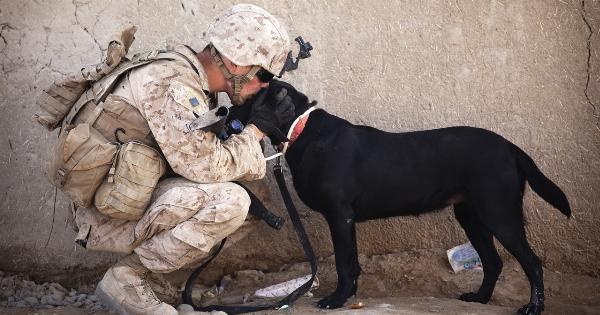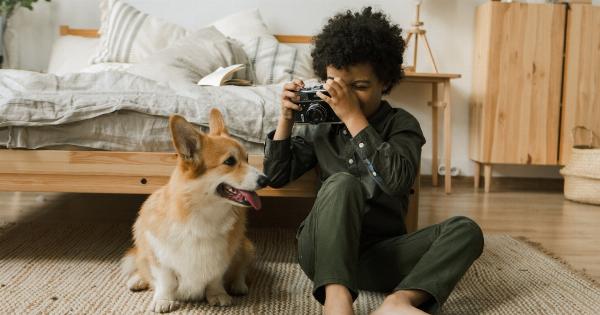As a dog owner, you may be faced with the difficult decision of leaving your furry companion behind while you attend to various aspects of your life such as work, travel or even family emergencies.
Whether it is for a few hours or a few weeks, it can be tough leaving your loyal friend alone at home. However, with a bit of preparation and consideration, you can make the experience less stressful for both you and your beloved pet. Here are some things you should know before leaving your dog behind.
1. Understand Your Dog
Before making any plans to leave your dog behind, it is essential to understand their personality, temperament, and individual needs.
Some breeds are more independent, while others are more emotionally attached and may suffer from separation anxiety when left alone. Additionally, age, past experiences, and socialization also play a significant factor in your dog’s behavior when left alone.
Therefore, it is crucial to take the time to assess your dog’s needs and determine the best approach for their care while you are away.
2. Consider Your Dog’s Health
Before leaving your dog behind, ensure that they are in good health. If your dog is sick or has a medical condition, leaving them alone may not be the best idea, as they may require careful monitoring or special treatments.
Have your dog checked by a veterinarian to ensure they are healthy and current on all their vaccinations. If your pet requires regular medication or special diets, ensure that you have an adequate supply and clear instructions for their care while you are away.
3. Choose The Right Caregiver
If you cannot take your dog with you, you will need to choose a caregiver that you trust to take care of your pet while you are away.
If your dog has special needs, consider hiring a professional pet-sitter or a reputable dog boarding facility that specializes in caring for dogs. A family member, friend, or neighbor may also be an option for short-term care, but it is crucial to ensure that they are familiar with your dog’s needs and able to provide proper care.
4. Provide Adequate Supplies
Ensure that your caregiver or boarding facility has everything needed to take care of your dog while you are away, including food, water, treats, and toys.
If your dog requires any medication, ensure that the caregiver has enough medicine and clear instructions on its administration. Additionally, provide your caregiver with emergency contacts, including your veterinarian’s phone number and a number where you can be reached in case of an emergency.
5. Prepare for Anxiety & Depression
Dogs can experience anxiety or depression when they are left alone, particularly if they have never been separated from their owners before. Therefore, it is crucial to prepare your dog well in advance of your departure.
Start by gradually weaning your dog off your presence, leaving them alone for short periods initially, and gradually increasing the time. Additionally, ensure that your dog has a comfortable and familiar environment, such as their bed, toys, and favorite blanket, to provide a sense of security and comfort.
6. Keep Your Dog Active
Dogs need plenty of exercise and mental stimulation to remain happy and healthy. Ensure that your caregiver or boarding facility exercises your dog regularly and provides them with enough playtime and attention.
Additionally, consider providing them with interactive toys, such as puzzle feeders, to keep them mentally stimulated and entertained, reducing the risk of anxiety and depression. Remember that a tired dog is a happy dog, and dogs that are tired after an active day are more likely to sleep well and settle into their new environment.
7. Properly Train Your Dog
Proper training is essential for a healthy relationship with your dog and helps them adapt to new environments.
Ensure that your dog is correctly trained in basic commands, such as “sit,” “stay,” “come,” “leave it,” and “down” to help them feel more comfortable and confident while in a new environment. Additionally, leash train your dog and ensure that they behave well around other dogs, which can be equally important in some boarding facilities.
8. Be Patient
It is common for dogs to experience anxiety or depression when left behind, particularly if they have not been away from their owners before.
Preparing your dog in advance and providing adequate care can help alleviate these issues; however, it is essential to be patient and understanding. If your dog is experiencing anxiety or depression, avoid reinforcing their behavior by giving them attention, which they may interpret as positive reinforcement.
Instead, stay calm, provide encouragement, and offer plenty of affection and reassurance when they are calm and relaxed.
9. Return Home Mindfully
When you return, be mindful of how you greet your dog. It is understandable to be excited and want to greet your furry friend with enthusiasm; however, your dog may have experienced significant stress and may require a gradual reintroduction process.
Take the time to allow your dog to adjust, offer them comfort and reassurance, and gradually reintroduce them to your regular routine.
10. Always Follow Up
After returning from your trip or the time you needed to leave your dog behind, ensure to follow up properly. Contact the caregiver or facility to get an update about your dog’s behavior and routine.
Additionally, observe your dog’s behavior after you return and watch for any changes in their behavior or health issues. If your dog has experienced separation anxiety or depression issues, it is essential to address them through proper training and attention to prevent future incidents.
Conclusion
Leaving your dog behind can be challenging, but with careful preparation and consideration, you can make it less stressful for both you and your beloved pet.
Understand your dog’s needs and personality, choose a reliable caregiver, provide adequate supplies and exercise, and be patient and considerate throughout the process. Always follow up after your return to ensure your dog is happy, healthy, and secure in your absence.































